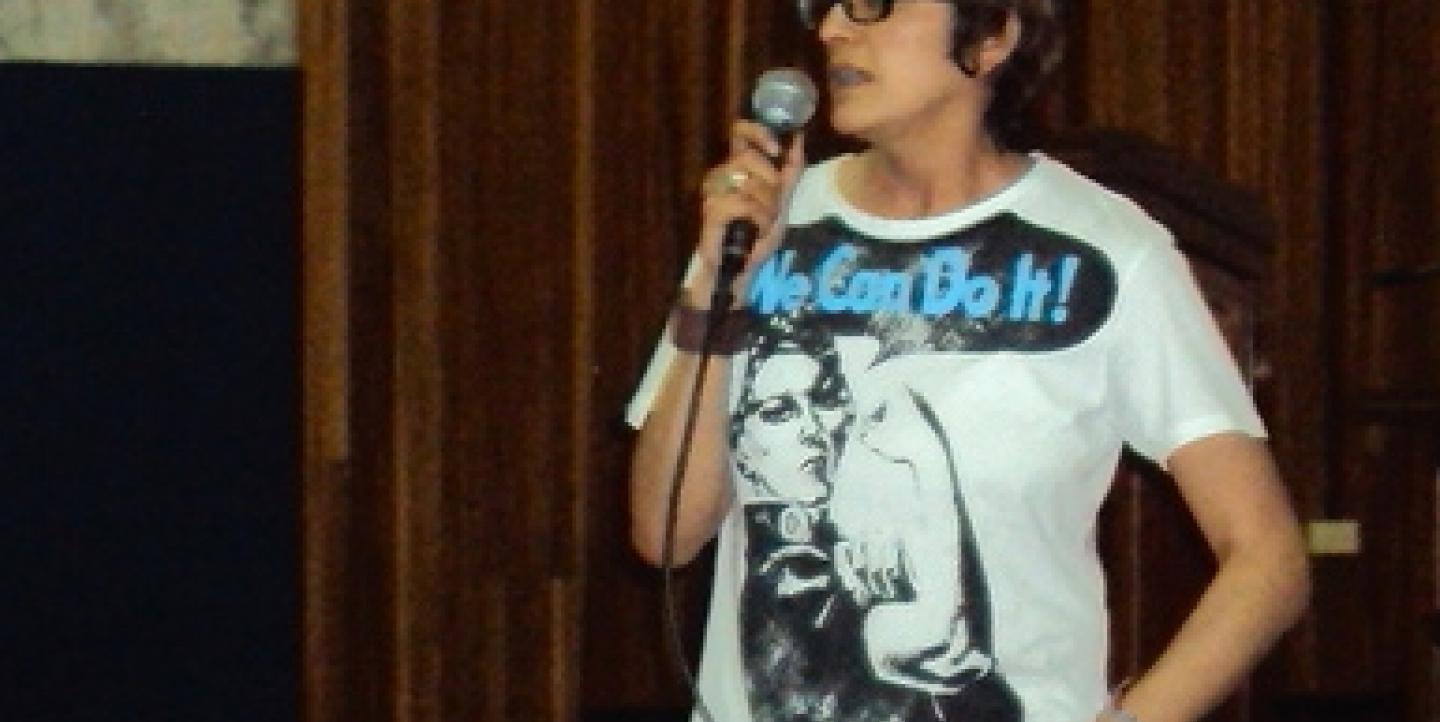Updated October 16, 2013.
The co-founder of one of the most important investigative journalism sites in Colombia, La Silla Vacía (The Empty Chair), has some advice for those who are thinking about creating their own website, app or other product:
"Don't think about it, do it. Doing things is the best way to learn. To try means to fail. To fail means to learn," said Olga Lucía Lozano, creative editor of La Silla Vacia. She recently shared what she has learned in the nearly five years of working on the site during a "Journalism Hangout" (She comes on at the 30-minute mark of the video, which is in Spanish.)
Avoiding mistakes
Lozano believes journalists need to be educating themselves constantly. They should share what they learn so others can avoid making the same mistakes. Part of the added value of La Silla Vacia, she says, is in the workshops and seminars on investigative journalism that the staff holds for other media all over Latin America.
The team is constantly experimenting with new forms of telling stories online and new ways of financing their journalism. She views the experiments much as a scientist would: if they don't produce the desired result, they aren't a failure. They're a learning experience that should be shared.
300,000 unique users
La Silla has a staff of 11. The site averages 300,000 unique visitors, 500,000 visits and a million page views a month.
In financial terms, it is breaking even. The monthly costs, mainly salaries, run to USD $30,000. Last year, 82 percent of its income came from international sources: the Open Society Institute, National Endowment for Democracy, Ford Foundation, United Nations Development Program and the Fondo Príncipe Claus.
Ten percent of its income came from advertising and 8 percent from consulting and workshops. At the end of last year, Lozano and Juanita Leon, co-founder and publisher, decided to drop La Silla's consulting on technology and communication because it was a distraction from the goal of the publication, namely producing high-quality journalism.
Innovations
La Silla has innovated in creating a series of lists of the "super powers" in a number of sectors, including politics, finance and NGOs, all displayed in compelling data visualizations.
La Silla is also trying to move to a system of support by its community of readers. As of last year its "Súper Amigos" included 512 people and institutions who contributed about $26,000. The publication used some of that to finance one of its most successful reports, Proyecto Rosa, which won the German Prize for Journalism and Development.
The project looked at the people in Colombia who have lost their land during the armed struggles of recent years. Its narrative was built around one person, Rosa Amelia Hernández. Visual artists, musicians, journalists, researchers and hundreds of Colombians contributed to create a collective memory of this chapter in the country's history.
The anti-academic
Lozano's university major was journalism and she teaches at two universities in Bogotá, but she doesn't really believe universities are equipped to train journalists. Her own biography on La Silla's website describes how for the past 12 years, she has been editor and publisher of various cultural and artistic websites while also working for print media.
She was also editor of new media for a major news publisher, Publicaciones Semana, when she left to join La Silla. For Radio Netherlands she created a course in how to write for the web and participated in an entrepreneurial journalism lab, co-sponsored by the New Journalism Foundation of Ibero America (Fundacion Nuevo Periodismo Iberoamericano). She is co-author of a book, "Colombiano es..."
Be business-minded
During the Hangout mentioned above, Lozano offered two more tips for journalism entrepreneurs starting their own projects:
-
Think about the business aspects from the beginning. Good ideas without financial backing will simply disappear.
- Start small with few employees to reduce costs and to avoid burning through your financial resources.
Given her experience, we should heed her advice.
This post originally appeared on the blog News Entrepreneurs. It is published on IJNet with the author's permission.
James Breiner is a consultant in online journalism and leadership. He is a former co-director of the Global Business Journalism Program at Tsinghua University and a former Knight International Journalism Fellow who launched and directed the Center for Digital Journalism at the University of Guadalajara. He is bilingual in Spanish and English. You can follow him on Twitter here.
Image of Olga Lucía Lozano CC-licensed on Flickr via Espacio Público.

